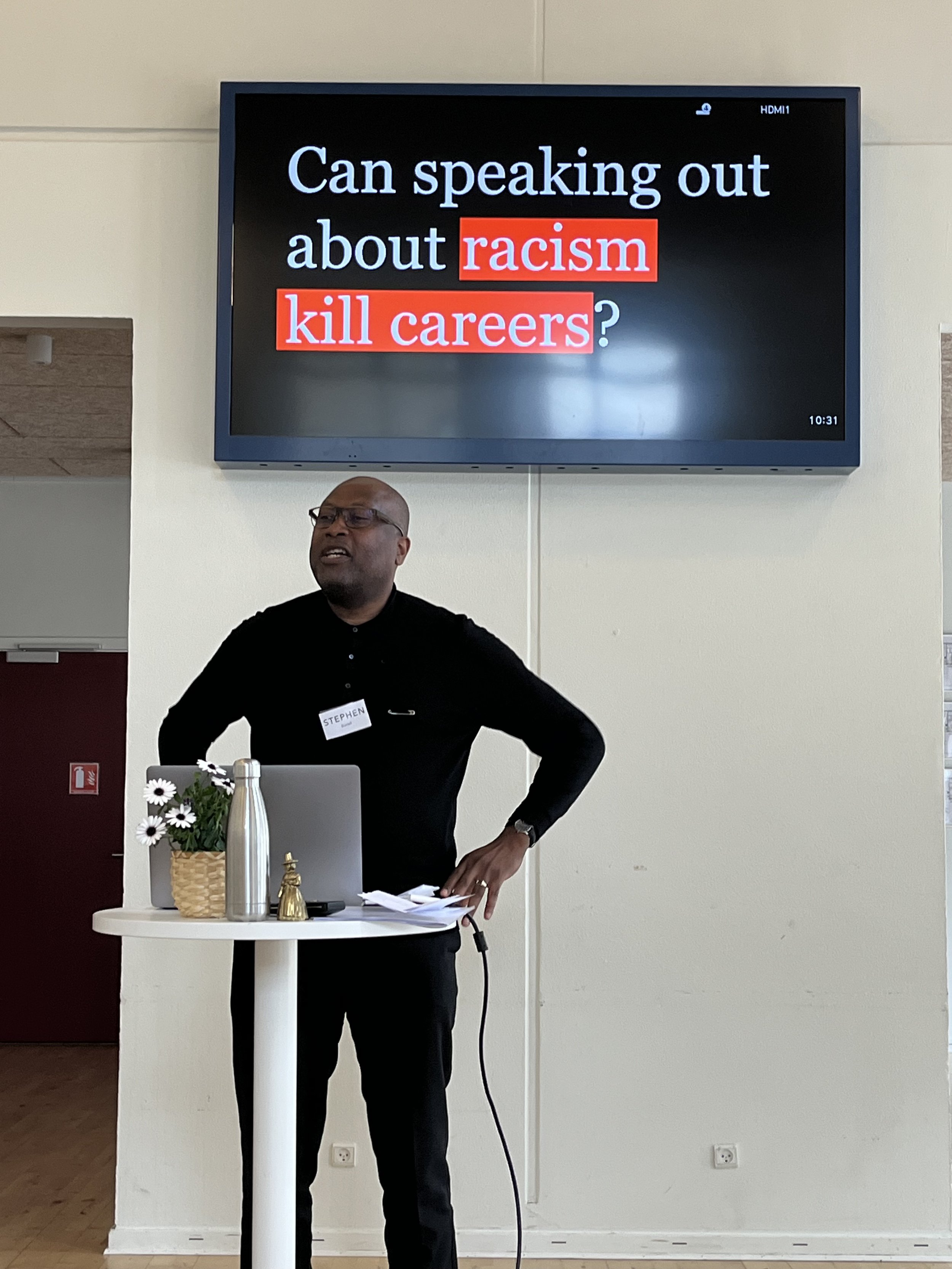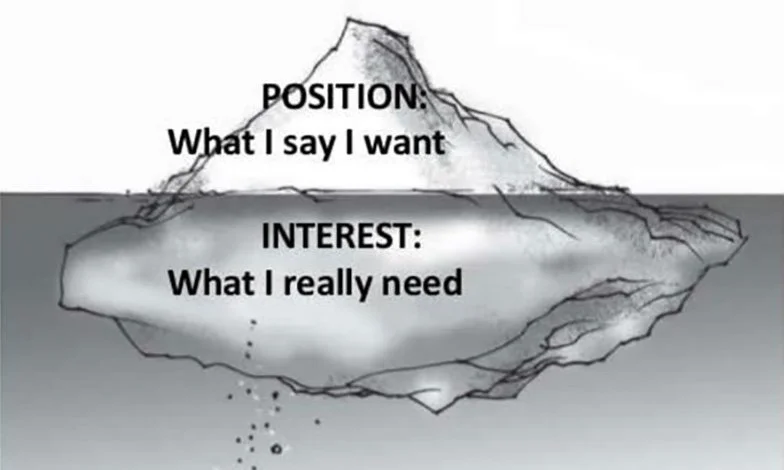Some critics argue that “equity” leads to reverse discrimination, suggesting it prioritises certain groups over merit. In response to evolving conversations around diversity efforts, JPMorgan has rebranded its DEI program to Diversity, Opportunity, and Inclusion (DOI) replacing the term equity with opportunity. Despite the rebrand, JPMorgan’s employee resource groups (ERGs) will continue to focus on engagement, cultural celebrations, education, and historical observances.
From my perspective, DEI is meant for everyone. Unfortunately, it’s often misunderstood and has been mischaracterised as part of a so-called “woke” agenda. I think that organisations that truly prioritise inclusion and foster a genuine sense of belonging will remain the best places to work, for everyone.
Nuance not noise
Conversations about DEI require more than opinions, they demand data, rigour, and reflection. It’s easy to reduce these topics to headlines or soundbites, but real progress depends on our ability to lead with nuance. I think that as leaders, we must hold space for complex conversations. We must ask difficult questions without defaulting to fear, and we must challenge our own assumptions and those of others with facts, not just feelings. DEI is not about lowering standards, it’s about expanding access. It’s about creating systems where talent, skill, and potential aren’t limited by bias or structural barriers. What do you think?
Together we grow
c/o Medium
What’s the most challenging part of your DEI job?
One of the most challenging parts is aligning individual perspectives with the broader goals of diversity, equity, and inclusion. For example, I once worked with a team member who was hesitant about implementing a mentorship program aimed at supporting women in leadership roles as they were concerned it might create unfair advantages. To address this, I shared an experience where we introduced a similar program in a previous organisation, and it resulted in not only more women in leadership positions but also an overall increase in team collaboration and performance. By framing the situation with concrete outcomes, I helped them see the bigger picture. My goal is not necessarily to change their mind but to broaden their understanding of why these initiatives are important from a DEI perspective.
The watered down version of DEI
I recently used an anology to illustrate the concepts of Diversity, Equity, and Inclusion (DEI) in the context of a meeting.
Diversity - Who is invited to the meeting?
Equity - Who is trying to get in but can’t?
Inclusion - Has everyone’s views been heard and acknowledged?
The receiver thought it captured the essence of each component of DEI, making it easy to understand and apply. What do you think?
““You can’t access empathy if you’re not willing to be vulnerable.””
Saying it as it is
I am not ashamed to admit that watching this video was the most insightful thing I have done today. We DEI professional think we know, this 10 minutes of productive self-awareness may question your biases.
Equality vs. equity
Deloitte ©
In the first image, it is assumed that everyone benefits from the same support. Do you think they are being treated equally?
In the middle image, individuals are given different support to make it possible for them to have equal access to the view. Are they being treated equitably?
In the third image, all three can see the view without any support because the inequality was addressed, and the systemic barrier has been removed.
Facts on Friday
What can you do to help?
DEI in the workplace and what it really means is a constantly evolving topic that you can’t learn from a book. I think both the personal and legal insights is what truly matters when trying to understand the position of underrepresented groups in the workplace through listening to their first-hand experiences. I have been guiding HR teams about the pressing issues they face and the right language to use when referring to a particular issue. When you don’t know what it’s like first hand to be part of an underrepresented group in the workplace then it’s worth taking time to understand how you can gain this insight. #justsaying
Fragility matters
How does fragility show up in the DEI space?
There is a notable presence of gatekeeping by privileged individuals who dominate discussions and initiatives in the DEI space in Denmark. These individuals often control the narrative and access to DEI resources, driven by a fear of losing power to those who might possess more knowledge or different perspectives. This defensiveness manifests as fragility, where they react negatively to criticism or conversations highlighting systemic inequalities. I think that telling uncomfortable truths can cost you friends, especially when you speak about the extraction of minerals and precious metals from Africa whilst the indigenous people live in poverty.
Free from biases
Diversity, equity and inclusion (DEI) is not only about skin colour; it’s about giving people who have talent the opportunity to express that talent. Often, the starting point can be biased, leading those who are not white to question:
a) Whether they possess the required skills, and
b) If they are the best person for the job.
I advocate for DEI policies because I recognise that many talented individuals from minority backgrounds deserve the same opportunities as the majority. In practice, minorities often need to be exceptional to secure white-collar jobs because societal structures have historically disadvantaged them. I think the western world was built on a patriarchal framework by the white majority, and it was not originally designed to include minorities.
Belonging at work
DEI in the workplace and what it really means is a constantly evolving topic that you can’t learn from a book. I think both the personal and legal insights is what matters when trying to truly understand the position of underrepresented groups in the workplace through listening to their first-hand experiences. I have been guiding HR teams about the pressing issues they face and the right language to use when referring to a particular issue. When you don’t know what it’s like first hand to be part of an underrepresented group in the workplace then it’s worth taking time to understand how you can gain this insight.
Listen to your employees
One of the most important things I have learned about Diversity, Equity, and Inclusion is the importance of active listening to your employees. And by doing so, you will gain insights that will identify your organisational challenges. Which subsequently will allow you to target your focus areas and tailor your approach to effectively maximising your impact. I think connecting with others is key, as we are all facing similar challenges.
It's just a discussion
If everyone is agreeing with you then you are in an echo chamber and you have just chosen the people to speak to. Controversy is just saying something that someone else just doesn’t agree with. I’m never afraid to speak about any subject that I have knowledge about as I only say things that I believe is fair.
You can book me for workshops, keynote speaking, coaching, DEI trainings or implementation facilitation here.
A pregnancy story
Allyson Felix is the most decorated female track and field athlete in Olympic history, a true great of the sport. Allyson Felix’s Nike contract expired in December 2017, when Felix became pregnant in 2018, Nike asked her to reduce the terms of her contract and take a 70% pay cut, and allegedly they told her to “know your place and run.” Amid all of this, she was forced to have an emergency c-section seven months into her pregnancy because of a potentially life-threatening condition, and her baby had to live for more than a month in the neonatal intensive care unit. Nike and Allyson Felix parted ways in 2019, and created her own brand of running shoes - Saysh One. In 2020, Allyson Felix qualified for her fifth Olympics in Japan wearing her own shoes under the banner “I Know My Place.”
After a broad public outcry and a congressional inquiry, Nike announced a new maternity policy for all sponsored athletes. The new contract guarantees an athlete’s pay and bonuses for 18 months around pregnancy. Subsequently, three other major athletic brands added maternity protections for sponsored athletes.
““Everyone sees the glory moments, but they don’t see what happens behind the scenes.””
Active allyship
Allyship needs to start with an examination of self, to better understand the power, privilege, and access available to you as an individual, as a result of the different identity groups to which you belong. Being an ally also requires deep education about the communities that you’re interested in demonstrating allyship toward. In Denmark, there is a disconnect between how minorities and majority cultures define allyship. The majority culture in Denmark think the most meaningful action they can take is to speak out about gender discrimination, whereas minorities think the best thing an ally can do is advocate for new opportunities. I think that cultural understanding and empathy are crucial for effective allyship efforts in order to have a more inclusive and collaborative approach to addressing issues of inequality and discrimination.
The overlap
In recent months, our focus has been on exploring how a deep understanding of intersectionality can enhance the sense of belonging in the Danish workplace. We've developed a comprehensive framework that emphasises the difference between equality and equity, and we've introduced an identity wheel as a tool to actively support marginalised groups. Our next step is to finalise the framework and begin testing it within focused groups comprising leaders and managers. Our ultimate goal is to enhance decision-making processes and foster more meaningful interpersonal connections.
Satisfy your interests
Diversity, Equity, and Inclusion (DE&I) can be divided into two distinct parts, positions and interests, as they serve as the profound lens through which we understand human dynamics. Positions are the things we say we want to achieve within DE&I initiatives, for example, advocating for equal pay, diverse representation in leadership, or implementing inclusive policies. However, beneath these explicit stances lie the intricate web of interests: the intricate tapestry of motivations, insecurities, aspirations, and historical contexts that shape our perspectives and fuel our advocacy. On the other hand, interests delve into the nuanced nuances of human experience, exploring the depths of our collective psyche to uncover the underlying desires for belonging, respect, and fairness. They are the silent orchestrators of our outward expressions, guiding our choices and actions as we navigate the complex terrain of diversity and inclusion. I think to truly comprehend the essence of DE&I efforts, one must excavate beyond the surface-level declarations of positions and delve into the rich landscape of interests, where the true essence of human connection and understanding resides.
Better decision making
Start using inclusion and diversity to improve your business performance via the decision-making process. This white paper shows you how…
Finding the right candidates
There is an immense potential in leveraging diversity, equity, and inclusion (DEI) as a competitive advantage. The technological advancement within recruitment is a massive opportunity to access different talent pools and foster a more inclusive environment within HR departments. Approaching candidate evaluation with fresh perspectives not only brings about diverse viewpoints but also highlights the value of varied identities and opinions. Numerous studies emphasise the correlation between DEI and enhanced business performance. For example, Forbes research claims, “Inclusive teams make better business decisions up to 87% of the time.” I think it's crucial to acknowledge that DEI initiatives will only produce meaningful results if they are backed by a truly inclusive organisational culture. And without such a culture, DEI efforts risk being mere lip service. Contact me here or via e-mail when you are ready to upscale and develop your leadership, culture, and people to truly have inclusive behaviours.
Equality vs. Equity
Equality means each individual or group of people is given the same resources or opportunities. Equity recognises that each person has different circumstances and allocates the exact resources and opportunities needed to reach an equal outcome.
““Equal treatment doesn’t always yield equal outcomes.””
The "E" in DEI
Equity is an approach that ensures everyone has access to the same opportunities. Improving equity is to promote justice, impartiality and fairness within procedures, processes, and distribution of resources by institutions or systems. It is a process that acknowledges uneven starting places and seeks to correct the imbalance. I think to tackle equity issues will require an understanding of the underlying or root causes of disparities within our society. Equity is distinct from equality in that equality is treating everyone “the same,” but it only works if everyone starts from the same place, and all need the same help. Equity makes the necessary adjustments to ensure inclusive experiences and fair treatment, access, opportunity, and advancement for all.
Contact me here or via e-mail for a meeting to discuss your organisation's DEI needs and requirements.




















